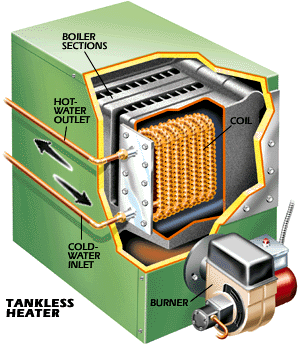Known for their compact size and speed, electric pool heaters are typically the go to heating solution for small spa set ups. But what sets this heater apart is how it produces heat.
How It Works



Electric pool heaters present simple and effective design. Compared to other pool heat pumps, electric heaters operate using only a few key components. The most important of all being the heating element – typically a metal resistor. The heating element runs throughout a good portion of the unit and is responsible for heating your pool.
When an electrical current is applied to the element, it quickly begins to generate heat energy. As water flows over the heating element, the heat is dispersed, warming the water and simultaneously cooling the resistor. The warm water flows into the pool, and the cycle continues to repeat until the desired pool temperature is achieved. This process is generally the same for both electrical inground pool heaters and electrical above ground pool heaters.
Unlike pool heat pumps, the heating process of electric resistance pool heaters relies exclusively on electricity. As one would imagine, this naturally comes with a few benefits. Electric resistance heaters, like gas heaters, can perform efficiently regardless of factors like the weather or temperature. Although that in itself is a huge advantage, what would pros be without cons?
Let’s take a closer look:
Advantages and Disadvantages of Electric Pool Heaters
Electric Resistance Pool Heaters | |
Advantages | Disadvantages |
|
|
Taking in everything we’ve discussed, you should now have a pretty good idea whether an electric swimming pool heater is right for you. Depending on the size of your pool, you may consider alternatives or a combination with a more energy efficient heat pump pool heater. To get a better understanding of the differences between the major types of pool heaters, check out our full-length pool heater comparison article.



That is cool that as water flows over the heating element the heat is then dispersed. I don’t know why I just pictured something different causing the water to heat up. Last night I was trying to explain electric spa heating to one of my friends who asked about our hot tub and I couldn’t figure out how exactly the heater worked. Thanks for explaining to me how exactly the heating works it makes a lot more sense to me.
Hi, Patricia. Thanks for your comment. We’re glad the post helped you get a better understanding of pool heating. Now you can explain it to your friend like a pro.